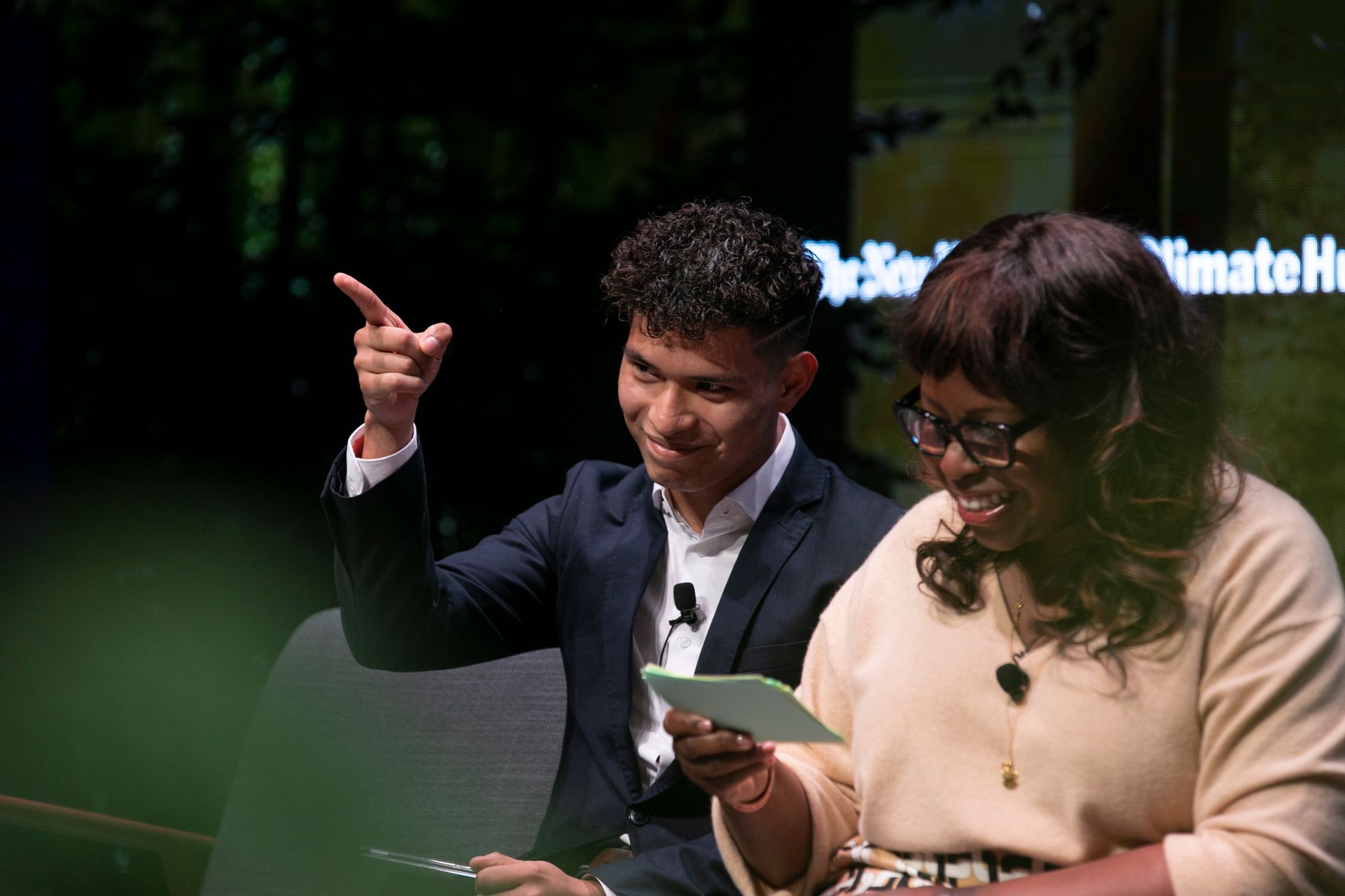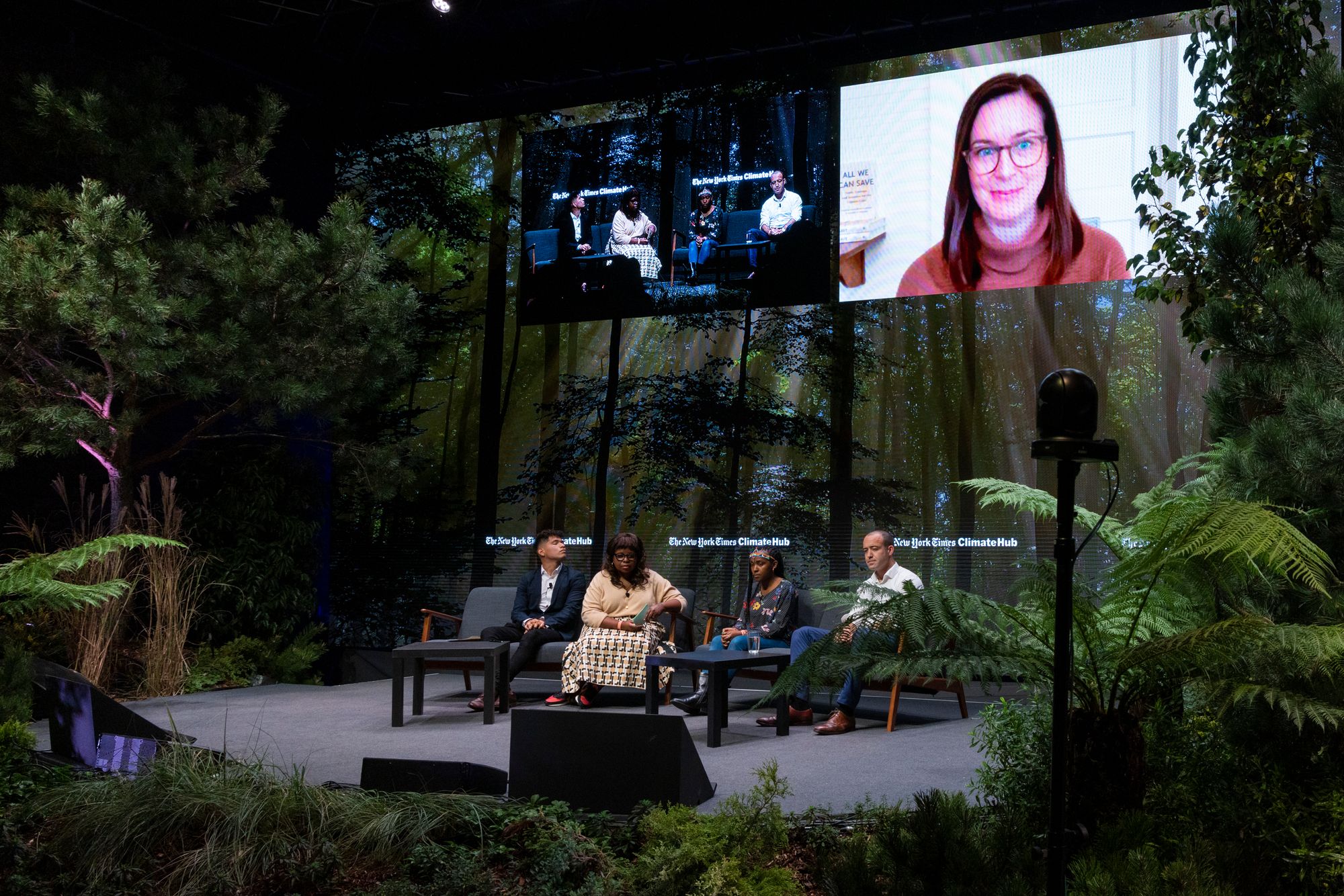Laughter is medicine, optimism is power. The New York Times held the panel “Reasons to Believe: Unleashing the Power of Optimism” as part of their Climate Hub for the 26th annual United Nations Climate Change Conference (COP26). Panelists Elizabeth Wathuti, Dr. Katharine Wilkinson, Bruno Rodriguez and Simon Mundy discussed optimism as a tool against complacency and the next steps in fighting the climate crisis.
Diversifying the climate change conversation is a part of activist Bruno Rodriguez’s goal. He is the leader of Youth for Climate in Argentina, a group that lobbies for systemic changes that will only be brought about by collective action. During the panel, Rodriguez urged “people of the global north to see how, for example, their own consumption patterns and their [lifestyles] are maintained, are sustained, by the exploitation of [other countries].” He calls it a system of domination, where those oppressed are unable to fully aid in this climate crisis, which affects them because they are forced to prioritize how they will get by, often having to side with companies who contribute to the crisis in order to maintain a liveable life.

The New York Times is familiar with this dilemma. The news outlet advertises for companies like Exxon Mobil who have been known contributors to the climate crisis. Yet the outlet also hosts efforts to combat environmental issues. However, those Rodriguez speak of have the personal risk of a liveable life at stake.
Simon Mundy, a journalist covering environmental and sustainability issues, attributes that ignorance of exploitation to the myth of resilience. This idea romanticizes poverty and hardship. He claimed the “conversation is being shaped very heavily by big business,” when it needs to be the people leading. With today’s technological advancements, he said, there is no excuse for the climate crisis conversation to exclude any group. People near and far, across socioeconomic classes, have a right to participate and engage in the issue that affects everyone.
Young Folks of Color Bringing New Voices to the Climate Crisis
Elizabeth Wathuti is a climate and environmental activist and the founder of the Green Generation Initiative, inspiring youths to care for the planet. She offered advice not to lean on hope but to lean on love. She said loving one another will evoke the actions to properly care for the Earth and each other. This love will hopefully overshadow the distress many feel toward this crisis. Wathuti referred to this apprehension as eco-anxiety. She claimed, “75 percent of young people are living in fear of the future caused by the climate crisis.”

A study from the University of Bath in the United Kingdom corroborates Wathuti’s statement. Of the ten thousand young people surveyed across ten countries, 75 percent of young respondents said, “The future is frightening.” While 45 percent said that “worry about climate change is affecting their daily lives and functioning.”
Dr. Katharine Wilkinson is a climate change activist and writer. Her recent book, The All We Can Save Project, is a collection of essays highlighting women’s voices in the environmental protection movement. Dr. Wilkinson also touched on eco-anxiety, referring to a like-minded phenomenon, climate emotions. She said it’s important that we feel rage and overwhelmed about climate issues. But most importantly, “when we work with those emotions consciously rather than suppressing them, they can become fuel for the work rather than sort of keeping us paralyzed.”
Looking to the Global South for How to Address Climate Change
She urged audience members to step away from the predominantly global north, white, male, view of this climate crisis. Seeing this pigeon-hole perspective as the biggest injustice for the whole of our species and calling for inclusivity. Dr. Wilkinson pointed to the “growing body of research that shows us that climate outcomes are manifestly better from the local level through to global negotiations when women are equally represented present and leading.” These outcomes and negotiations will only get better as conversations become more diverse and inclusive.

So how do we unleash this power of optimism?
Dr. Wilkinson first defined optimism as a “state of engagement with rather than retreat from the future.” This engagement with the future drives our call to action.
Wathuti declared, “The people with the open hearts are the ones that are going to make change happen and [leaders] will have no choice but to let the people power lead.” Engaging with an open heart drives change. It is important that it is a universal change.
Rodriguez reminded us that “the only valid hero is the collective hero, is the human group hero, never the individual group hero, never the lonely hero.”
Mooney contributed with a call to action: “Approach this as a human race and not with our own individual interests or national interests.” Together, the science that feels devastating and overwhelming will encourage us to act. Our optimism will only continue to grow as we accomplish change, starting with low-hanging fruit solutions. To start Dr. Wilkinson suggests “scaling genuine courage and collaboration just as much as we're scaling solar panels and no-till agriculture.”
It is easy for the future’s uncertainty to discourage us. But that is where the power of our optimism comes in. That power is already in works evident through the wide range of discussions like this panel. This power that is a life force for change in us and our planet.


